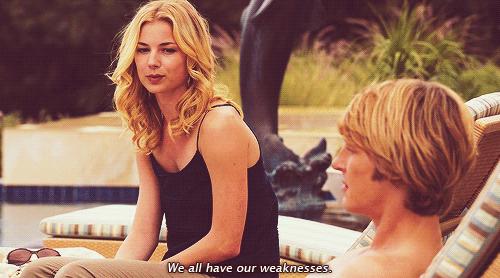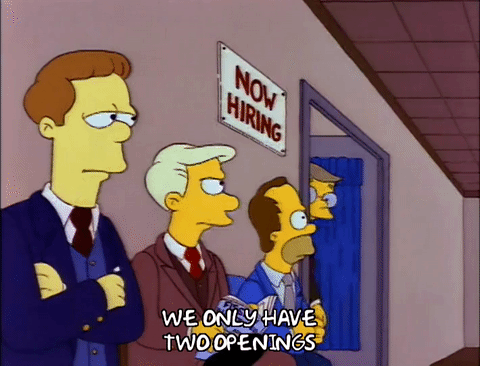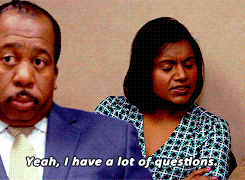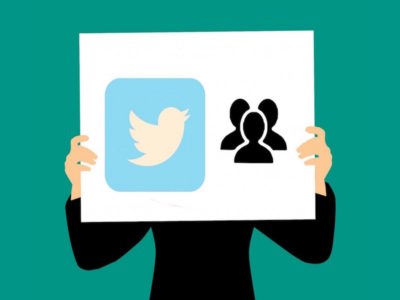Still searching for that perfect summer internship? Or maybe you just graduated and you don’t want to move back in with your parents. Yup, that means you need to get employed. Often easier said than done, you first have to survive the interview process first. No matter how nice you look in your new suit, your answers to the interview questions matter more.
Read All About These Common internship interview questions to Land Your Dream Position.
1. Tell me about yourself.
I personally dread this one the most. In my head I want to respond, “Isn’t that what my resume is for?” As popular as this question seems, it provides the interviewer the insight to see if you’d be a good fit for the position. “This doesn’t mean explaining your whole life,” Jaysen Williams, University of Florida’s Assistant Director for Career and Industry Engagement said. “It’s more or less showing your skills within the work force that has prepared you for the position you’re applying for.” You’ll want to keep this answer focused on work experiences and school. Talk about why you chose a particular school or how studying abroad inspired you to search for particular jobs.
2. What do you know about the company?

You don’t want to find yourself sitting in the lobby scrolling through your phone researching the company the day of the interview. Always research beforehand. “Don’t just search the company’s website, check out their social media pages, talk to someone who works there, read up on news articles about them [and] some people even look at their stock market ratings,” Katelyn Jerles, UF’s Assistant Director for Career and Industry Engagement said. Having this type of information shows not only that you’re prepared, but that you care.
3. How well do you work with a team?

Even if it’s a job where you’ll most likely make deadlines or perform tasks alone, there’s no denying that you’ll have interactions with others in the company. “No one is ever really [solo] in any sort of role,” Jaime Harsell, UF’s Assistant Director for Career and Industry Engagement said. Try giving an example rather than context. Tell the interviewer about a time you collaborated with another employee and its success. Also, provide examples of your ability to bring forth new ideas within a group, because with good communication better quality work is achievable. “There’s always different personalities work[ing] together and diverse individuals in a variety of teams to get a project done. Overall you’re contributing to the organization’s mission even if the job description is presented as an individual job,” said Harsell. In other words? Working well with others means benefiting the company more, making you more appealing to the interviewer.
4. What type of salary are you looking for?

Always do your research prior to the interview so you know the average income for that position. For instance, the average wage for a typical paid internship is about $12.43. You can find websites that have this type of knowledge available so you don’t enter either overpricing or worse, under pricing yourself. Do your research for the field and industry to see how much they’re paying their interns. If it’s a multiple round interview, don’t bring up salary at the initial stage. During the next round, you can use it as one of the questions you plan on asking at the end. Give a range and insist that you’re flexible and more interested in finding the right fit.
5. What are your weaknesses?

As Harsell said, this question’s always tough. Don’t just answer you’re a perfectionist because everyone makes mistakes and life has unexpected mishaps. Also, avoid saying that your greatest weakness involves putting so much time and effort into a project that you finally look at the clock only to see a lot of time has passed. This makes you seem like your weakness is putting in more effort than everyone else. Instead, show them that you’re aware of your weaknesses. You could say you’re not very organized, but you’ve recently began setting a schedule and planning ahead so you don’t miss deadlines. Or, tell them how a particular weakness challenged you in the past and that you’re actively taking steps to improve yourself.
6. What are your greatest strengths?

Positive questions like these helps set the tone for the interview, so brag away.”[It’s] hard sometimes to talk about positive qualities because I don’t want to brag but I know that’s the point of this question,” UF senior Shaina Plotkin said. It also gives you the opportunity to impress the interviewer with a one-of-a-kind story that can set you apart. Pick a relevant skill that relates to the job description and emphasize how you used that skill, either in a former job role or at school. Also, always do more showing than just telling. “In an interview I like to talk about my positive outlook on life for my greatest strengths,” said Plotkin. See how descriptive that sounds?
7. Describe a situation when something went wrong.

“You don’t want to make these type of answers closely related to the job qualifications,” Jerles said. You wouldn’t want to mention how you missed a deadline or went to an important meeting late when these involve aspects important to performing the job well. Instead, why not let the interviewer know about your ability to rise above conflict and remain calm during a stressful work situation? You could mention a group project in which you didn’t do enough research on your end and the group grade suffered. With that mindset, you can describe how you now prepare in advance in the case that something goes wrong.
8. Why should we hire you?

This is one of the last internship interview questions to prove yourself worthy of the job. The employer wants to make sure that you’re not there just for a paycheck, so don’t answer, “Because I need a job.” They’re looking for someone who can grow as a person and an employee. Tell them things you like about the company and how your strengths align with the job, like the company dynamics or the ability to grow with the opportunities they have. This will make you a better candidate than the competition.
9. Where do you see yourself in five years?
You may not see yourself with the particular company but you definitely shouldn’t say, “Well, not here.” “It’s good to have long term goals,” Dr. Katrice Graham, UF’s Director of Knight Division for Scholarships, Career Services and Multicultural Affairs said. Let the company know your ambitions and hopes in the position you’re interviewing for and relate it to that particular industry. Also, telling them that the internship would let you see how the industry works first hand and how it’s growing in the changing field will allow you to make those all-important connections.
10. Do you have any questions for me?

Always have a bank of questions because this marks your last opportunity to show the interviewer that you’ve truly have done your research. “Interviews are a two way street,” Graham said. You don’t need to ask questions that you could easily find the answer to or about time off and benefits this early in the process. Take this time to get some clarity on the position itself that may not be completely outlined in the job description. You can ask about the office culture or what’s going on in the industry field and how the organization continues to adapt. Just never say “no,” which will help them say “yes” to your employment.
You rocked the interview questions, now figure out what to wear to your interview.
Written by Cara Hedgepeth, junior, journalism, University of Maryland
Whether we like it or not, at some point, our days of staying up until 3 a.m. and sleeping until noon will be over. That’s right: We’ll all have to go out and get real-people jobs. I know, I know, it’s a scary thought. But when that day does come, we’ll most likely have to interview for that real-person job. And while your sweat pants, favorite tee and Uggs may be appropriate collegiate wear, this get-up is typically frowned upon in the professional world.
While your attire may vary slightly depending on the type of job you’re interviewing for, there are a few things that you can count on. Ladies, it’s always a good idea to minimize your make-up, jewelry and perfume. While you hope to make a good impression, you want the employer to remember you for your skills not for your fragrance or abundance of eye-liner.
Guys, a clean shave and well-manicured nails will show that you spent more than the usual six minutes getting ready.
For business professional jobs, senior business major Abby Widom said, “Nothing more casual than a three-piece suit [is appropriate].” The same holds true for men interviewing for a corporate position.
For interviews outside of the corporate world, a suit is not mandatory. Still, your appearance should still be neat and well-put together. Slacks, dress shoes and either a sweater or button-down shirt will make a good impression. But just wearing the clothing isn’t enough. It’s important to make sure the pieces fit you, match and ironed when necessary.
After a mock interview, senior Emily Hepler said the interviewers’ only negative comment for her was that, “… [her] sweater was buttoned and was puckering a bit, which didn’t look too classy.”
If you’re interviewing for a position in fashion or art where creativity is part of the job description, it’s acceptable to make a statement about your personal style with your clothing, hairstyle and makeup. With that said, remember you do want to be hired. A funky scarf, bag or other accessory might showcase your individuality without overwhelming your interviewer. Guys, if these suggestions don’t appeal to you, try adding a touch of color with a bright colored tie or handkerchief or wearing a pair of stylish glasses.
While a snazzy outfit won’t compensate for a lack of knowledge or skills, being presentable will show an employer that you are confident and are taking the interview seriously.
Now you’ve got the interview down, but do you have everything else in place to shine at your summer internship? Check out four steps that make it easy here.
*Article updated May 29, 2017 by Cara Hedgepeth to include “Interview Attire.”



















